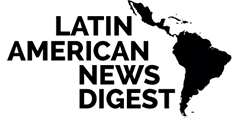On June 5, 2016 Peruvians voted in the runoff presidential election between Pedro Pablo Kuczynski (known as “PPK,” as is his party, Peruanos Por el Kambio) and Keiko Fujimori of the Fuerza Popular or FP. Fujimori came out on top in the first round with 39.85% of the vote. And while the majority of Peruvians
Read More- Published in Featured Post, Main Story
In late May 2016, journalists Salud Hernández, Diego D’Pablos, and Carlos Melo were abducted by armed men in the Catatumbo region of the department of Norte de Santander, Colombia. It immediately became apparent that they were taken by members of Colombia’s second largest guerrilla group, the ELN (Ejército de Liberación Nacional). Though they were quickly
Read More- Published in Featured Post, Main Story
As economic collapse and political breakdown loom in Venezuela, with the opposition-controlled Asamblea Nacional pushing a recall referendum to oust President Nicolás Maduro, the president decreed special powers that will run into 2017. Opposition leader Henrique Capriles, who narrowly lost the last presidential election to Maduro, has called on the military to “uphold the Constitution”
Read More- Published in Main Story
The administration of President Mauricio Macri and its allies in the Argentine Congress from the PRO and Unión Cívica Radical (UCR) parties initiated a legal process that resulted in an indictment against President Cristina Fernández de Kirchner (2007-2015) and former members of her Frente para la Victoria (FpV) government. She and her former ministers stand
Read More- Published in Main Story
The political death struggle between Eduardo Cunha, the president of the Chamber of Deputies (the lower house of the Brazilian Congress), and President Dilma Rousseff seems to have finally run its course. The two former political allies fell out when the president declined to shield the leader of the Deputies (third in line for the
Read More- Published in Main Story
In late April 2016 almost 2 million Venezuelans signed a petition calling for a referendum on the removal of President Nicolás Maduro from office, well in excess of the 200,000 signatures needed to start the process. Over the course of a couple of days more than 1.8 million voters signed on, many claiming to have
Read More- Published in Main Story
Experts from the outside group of investigators (the Grupo Interdisciplinario de Expertos Independientes, or GIEI, created by the Inter-American Commission on Human Rights, IACHR) examined the Mexican government’s version of events surrounding the mass kidnapping and presumed murder of the 43 male students from the Escuela Normal Rural Raúl Isidro Burgos in Ayotzinapa. They ended
Read More- Published in Main Story
Observers on the ground in Brazil report passions inflamed, families torn apart, friendships strained or ended, children confused, and social media on fire over the vote on April 17, 2016 in Brazil’s lower house of Congress to impeach President Dilma Rousseff. Protestors for and against the measure have flooded Brazilian streets, with plenty of raised
Read More- Published in Main Story
On April 10, 2016 Peru held national elections and the first round of its presidential electoral process. Keiko Fujimori of the Fuerza Popular (FP) won the largest share of votes, but fell well short of the 50% needed to avoid a second round, and her opponent in the June run-off will be former World Bank
Read More- Published in Main Story
On April 3, 2016, news of the so-called “Panama Papers” broke with powerful force in the international press, catching many world leaders and celebrities in a harsh spotlight that points to potentially untoward activities. Millions of documents from a prominent Panamanian law firm, Mossack Fonseca, had been leaked to the German newspaper Südeutsche Zeitung that
Read More- Published in Main Story








